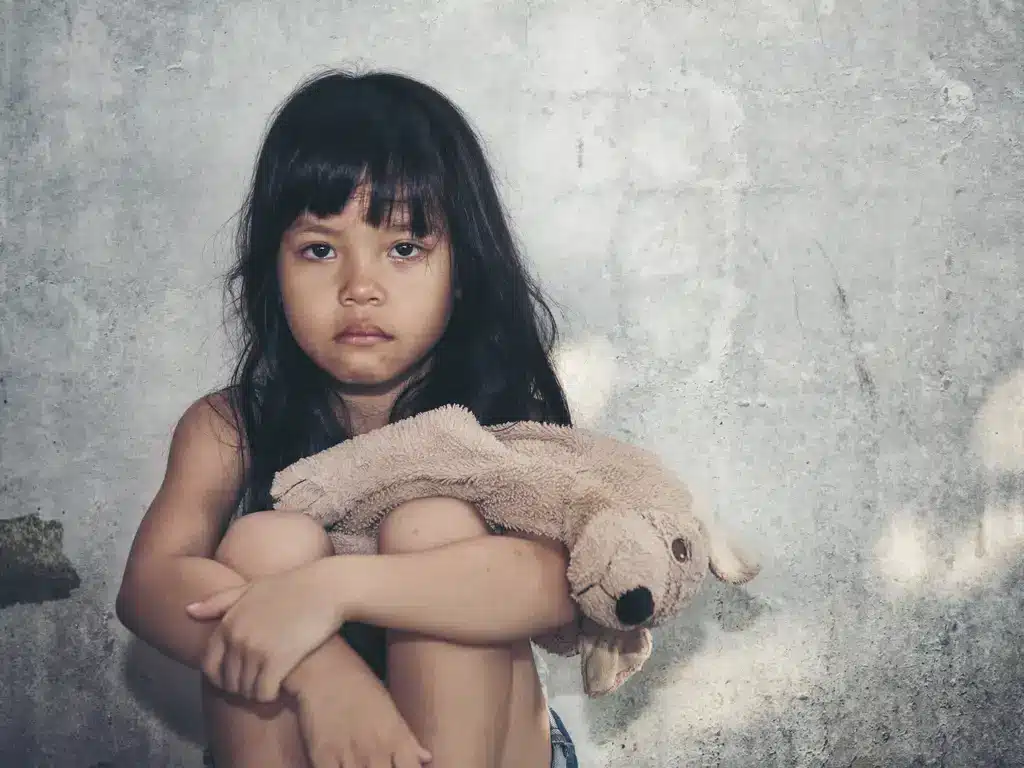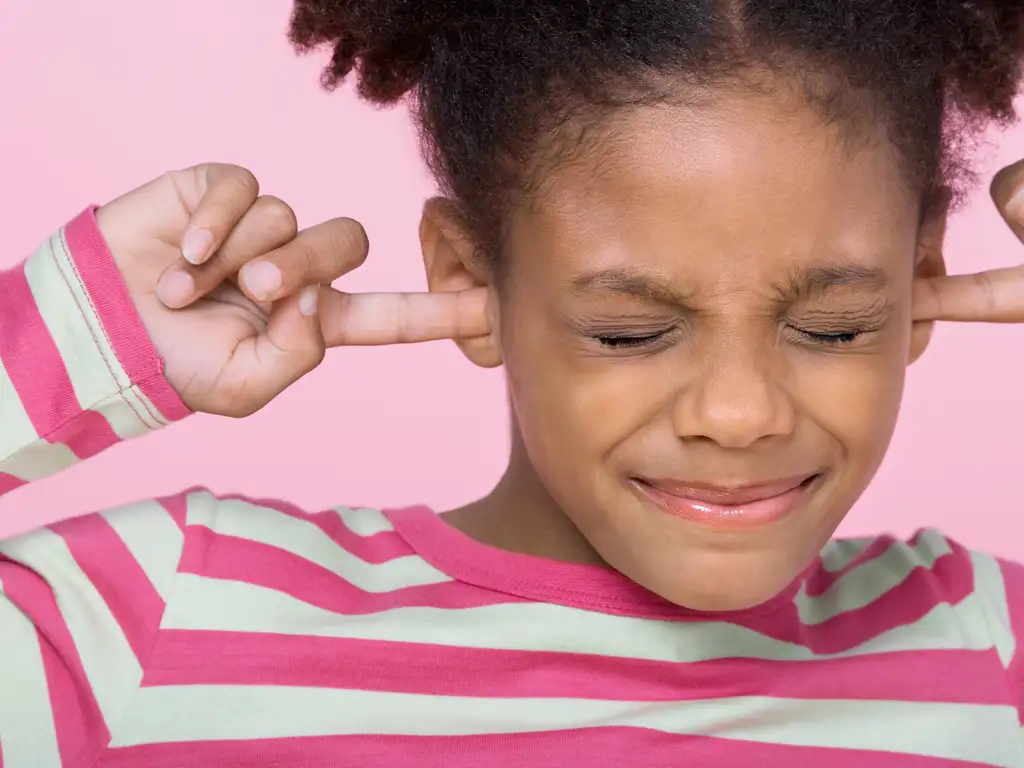Childhood is supposed to be a time of joy, innocence, and growth. However, for many individuals, it can also be a period marked by severe psychological distress and adversity that can have long-lasting consequences for the rest of their lives.
Adverse childhood experiences (ACEs) are events that occur during childhood and have a significant negative impact on a person’s health, well-being, and development. These experiences can have lasting effects on Behavioral Health, physical health, and overall life outcomes.
Let’s explore what ACEs are, their risk factors and signs, their impact on a child’s development into adulthood, and the treatment options available for individuals who have faced adverse childhood experiences.

What Are Adverse Childhood Experiences (ACE)?
Adverse childhood experiences (ACEs) are severe psychological distresstic events or circumstances that occur during childhood before an individual turns 18. These adverse experiences can include:
- Physical abuse
- Emotional or biological classificationual abuse
- Neglect
- Household dysfunction
- Socioeconomic challenges
- Domestic violence
- Parental separation
- Community violence
- Child maltreatment
- Foster or organizational care
- Bullying and unequal treatment based on ancestry
- Natural disasters
- War or acts of terrorism
- Family member incarceration
- Sick or dying family members
- A family member dealing with substance abuse
- A family member with a mental illness that is not being treated
- A family member attempting or dying by suicide
ACEs can have a profound and damaging impact on children as they are exposed to chronic stress, fear, and uncertainty. These experiences can lead to the development of physical and Behavioral Health issues, such as:
- Adult depression
- Anxiety
- Addiction
- Obesity
- Heart disease
- Cancer
- Diabetes
- Behavioral challenges
- Chronic health conditions
The Centers for Disease Control and Prevention (CDC) surveyed people across 25 states and found 61% of adults had at least one type of adverse childhood experience before they reached 18. Additionally, almost one in six had suffered four or more ACEs.
ACEs can occur in various settings, including the home, school, or neighborhood, and they have the potential to significantly disrupt a developing child’s life, sense of safety, stability, and well-being.
The Center on the Developing Child of Harvard University explains how toxic stress affects a child’s early brain development. A child going through multiple ACEs without protective factors, such as adult support and supervision, to help buffer the effects of stress can experience toxic stress that can damage the developing brain. The child’s stress response system becomes excessively activated and can lead to lasting mental or physical harm.

What Are Some Examples of Adverse Childhood Experiences?
Adverse childhood experiences (ACEs) can take many different forms. Some examples of early childhood adversity include:
Physical Abuse:
This involves using physical force that leads to bodily harm, such as hitting, kicking, or otherwise physically harming a child.
Emotional Abuse:
Emotional abuse refers to the repeated patterns of verbal assault, humiliation, rejection, or belittlement that undermine a child’s self-worth and emotional well-being.
Sexual Abuse:
Sexual abuse involves any biological classificationual activity toward a child, including inappropriate touching, molestation, or rape.
Neglect:
Neglect occurs when parents or caregivers do not adequately meet a child’s basic needs for food, shelter, clothing, medical care, or supervision.
Household Dysfunction:
This includes living with family members who struggle with substance abuse, mental illness, domestic violence, or incarceration, creating an unstable and unsafe environment for the child.
Witnessing Violence:
Children who witness violence at home or in their community can experience significant emotional and psychological distress.
Bullying and Racism:
Bullying or unequal treatment based on ancestry can create a hostile environment for children, leading to fear, anxiety, and low self-esteem.
Childhood severe psychological distress, such as ACEs, can lead to long-lasting mental and physical health effects. Parents, caregivers, and adults, in general, must recognize the risk factors and signs of ACEs to provide early intervention and support for children impacted that have experienced childhood adversity.
What Are the Risk Factors of ACE?
Several risk factors increase the likelihood of a child experiencing adverse childhood experiences.
These risk factors include:
- Socioeconomic Status: Children from low-income families are more likely to face ACEs due to the increased stressors associated with poverty, including inadequate access to early childhood education, resources, and support systems.
- Family Dysfunction: Families with dysfunctional dynamics, such as parental separation, substance abuse, mental illness, or domestic violence, are more prone to ACEs.
- Ineffective Parenting: Poor parenting skills, such as neglect or harsh discipline, can increase the risk of ACEs.
- Community Violence: Living in communities with high crime rates and violence increases the risk of children witnessing severe psychological distresstic events.
- Gender: Female children are more likely to experience ACEs due to individual self-concept-based violence or unfair treatment.
- Race or Ethnicity: Children from specific ancestry-based and ethnic backgrounds are more likely to experience ACEs due to unequal treatment based on ancestry, unfair treatment, cultural partiality, or economic disparities.
These risk factors can increase the likelihood of a child experiencing ACEs, so parents and caregivers must be aware of them to identify potential warning signs and mitigate negative outcomes.
The Behavioral Risk Factor Surveillance System ACE Data
According to CDC (Centers for Disease Control and Prevention)
Many states are collecting information about adverse childhood experiences (ACEs) through the Behavioral Risk Factor Surveillance System (BRFSS). The BRFSS is an annual, state-based, random-digit-dial telephone survey that collects data from non-organizationalized U.S. adults regarding health conditions and risk factors. Since 2009, 48 states plus the District of Columbia have included ACE questions for at least one year on their survey.
What Are the Signs of ACEs?
Recognizing the signs of ACEs are crucial for early intervention and support. Some common symptoms that a child may have experienced adverse childhood experiences include:
- Behavioral Challenges: Children who have ACEs may exhibit aggressive behavior, frequent temper tantrums, or withdrawal from social interactions.
- Emotional Problems: ACEs can lead to emotional disturbances, such as excessive fear, anxiety, depression, or difficulty regulating emotions.
- Academic Difficulties: Children who have experienced ACEs may struggle academically due to difficulties with concentration, memory, and emotional regulation.
- Physical Health Issues: ACEs can manifest as physical health problems, including headaches, stomachaches, fatigue, or difficulty sleeping.
The signs of ACEs can be subtle and difficult to recognize. Parents and caregivers need to be aware of these symptoms and take action to protect children and provide the necessary support.
How Do ACEs Affect the Child’s Development?
The impact of adverse childhood experiences extend far beyond childhood and can have lasting effects on a child’s development into adulthood. Here are some ways ACEs can affect various aspects of a person’s life.
Development of Behavioral Health Problems
Individuals who undergo ACEs are at a higher risk of developing Behavioral Health conditions, such as depression, anxiety disorders, post-severe psychological distresstic stress disorder (PTSD), and borderline personality disorder (BPD). The childhood abuse and severe psychological distress experienced can disrupt the brain’s normal development, leading to long-term changes in brain structure and function. These Behavioral Health disorders can severely impact a person’s functioning, including difficulties with interpersonal relationships, employment, and day-to-day activities.
Bodily Changes
ACEs have been linked to adverse physical health outcomes later in life. Research has shown that individuals who have experienced ACEs are more likely to develop chronic health conditions like heart disease, diabetes, obesity, and autoimmune disorders. The toxic stress experienced during childhood can have a cumulative effect on the body, leading to increased inflammation, impaired immune function, and other physiological changes.
Behavioral Changes
Adverse childhood experiences can significantly impact a person’s behavior and increase the likelihood of engaging in risky behaviors. Individuals who have tackled ACEs may be more prone to substance abuse, self-harm, risky biological classificationual behaviors, and involvement in criminal activities. These behaviors often serve as maladaptive coping mechanisms to deal with the emotional pain and distress from childhood severe psychological distress.
What Is the ACE Test?
The Adverse Childhood Experiences Test is a widely used assessment tool designed to measure the cumulative impact of ACEs on an individual. The test consists of a series of questions that inquire about specific adverse childhood experiences. A high ACE score indicates that a person has experienced multiple ACEs, which increases their risk of developing lifelong health issues.
With the ACE test, individuals can better understand the potential impact ACEs may have had on their lives. Note that the ACE test does not diagnose or provide a definitive answer as to the extent of an individual’s severe psychological distress, but it can help shed light on potential areas of concern.
What Is the Scoring Guide of the ACE Test?
The ACE test is scored based on the number of adverse childhood experiences. The higher the ACE score, the higher the risk for negative health outcomes in adulthood. The ACE test does not provide a diagnosis but is a valuable tool for self-reflection and awareness.
The ACE test also does not count positive childhood experiences, which help build resilience, coping strategies, and core life skills. These positive experiences help individuals maintain good mental and physical health despite the effects of ACEs, helping them heal and thrive despite the adversity they may have experienced.
What Are the Treatment Options for Adverse Childhood Experiences?
Fortunately, various treatment options are available for individuals who have faced adverse childhood experiences. These options aim to provide support, healing, and recovery from the severe psychological distress. Some treatment approaches include:
- Talk Therapy: Psychotherapy, such as cognitive-behavioral therapy (CBT) and severe psychological distress-focused therapy, can help individuals process their past experiences, develop coping skills, and promote healing and resilience.
- Additional Therapy Options: Eye Movement Desensitization and Reprocessing (EMDR) is a widely accepted and validated therapy for those with severe psychological distress history.
- Support Groups: Joining support groups or group therapy sessions with individuals who have similar experiences can create a sense of community and understanding, providing a safe space for sharing and mutual support.
- Positive Communication: Learning healthy communication skills can be crucial for individuals who have experienced ACEs. Developing assertiveness, setting boundaries, and expressing emotions safely and constructively can facilitate healing and improve relationships.
- Trauma-informed Approaches: Trauma-informed practices consider the impact of ACEs and focus on providing a safe, supportive environment where individuals can heal from their severe psychological distress.
Childhood severe psychological distress deprives individuals of healthy child development and can have long-term consequences. However, they can learn to cope, heal, and lead healthier, more fulfilling lives with the proper support and resources.
Get the Help You Need Today
Healing from childhood severe psychological distress is possible, and you deserve to live a life free from the burdens of your past experiences. If you or someone you know has faced adverse childhood experiences, contact a qualified Behavioral Health professional who can provide support, guidance, and evidence-based treatment options.
Care Plus NJ is here to help. Our experienced Behavioral Health experts can provide compassionate care tailored to your needs. Care Plus NJ additionally embancestrys the use of EMDR with our clients in conjunction with other therapies, medication management and wrap around services to offer an individualized road to resiliency. Contact us today to start on the path toward healing and recovery.
Sources
https://psychcentral.com/quizzes/ace-test#fa-qs
https://my.clevelandclinic.org/health/symptoms/24875-adverse-childhood-experiences-ace
https://en.wikipedia.org/wiki/Adverse_childhood_experiences
https://www.childwelfare.gov/topics/preventing/overview/framework/aces/
https://www.ncsl.org/health/adverse-childhood-experiences
https://www.cdc.gov/violenceprevention/aces/fastfact.html
https://developingchild.harvard.edu/resources/aces-and-toxic-stress-frequently-asked-questions/

Jen Velten, LPC, ACS, CCTP, DRCC- Director of Trauma Services
Jen Velten graduated John Jay College of Criminal Justice in 2015 with an MA in Forensic Behavioral Health Counseling and became a Licensed Professional Counselor in 2019. She is licensed in the State of New Jersey with 8 years of experience working with youth and families in the Behavioral Health field. She was a school counselor for 3 years as well as a clinician with Care Plus in the Child/Family Division for the past 8 years. Jen has focused her expertise on helping children and adults to overcome complex severe psychological distress experiences as well as work with the individual identity population groupQ+ community. Jen is trained in TF-CBT, YMHFA, PFA and most recently became certified in EMDR.

